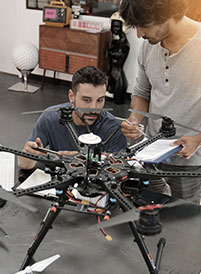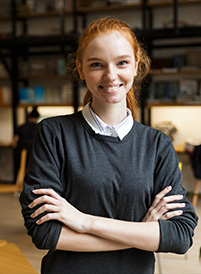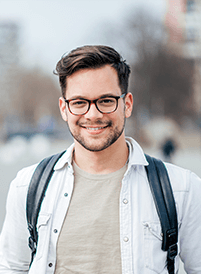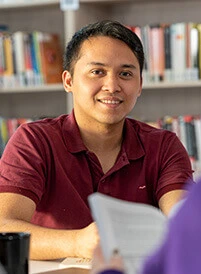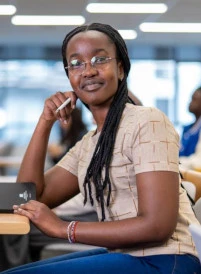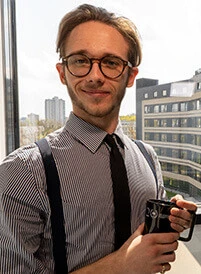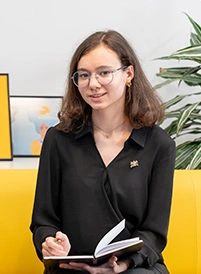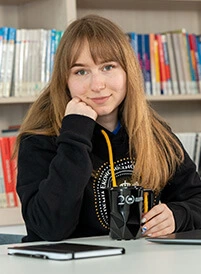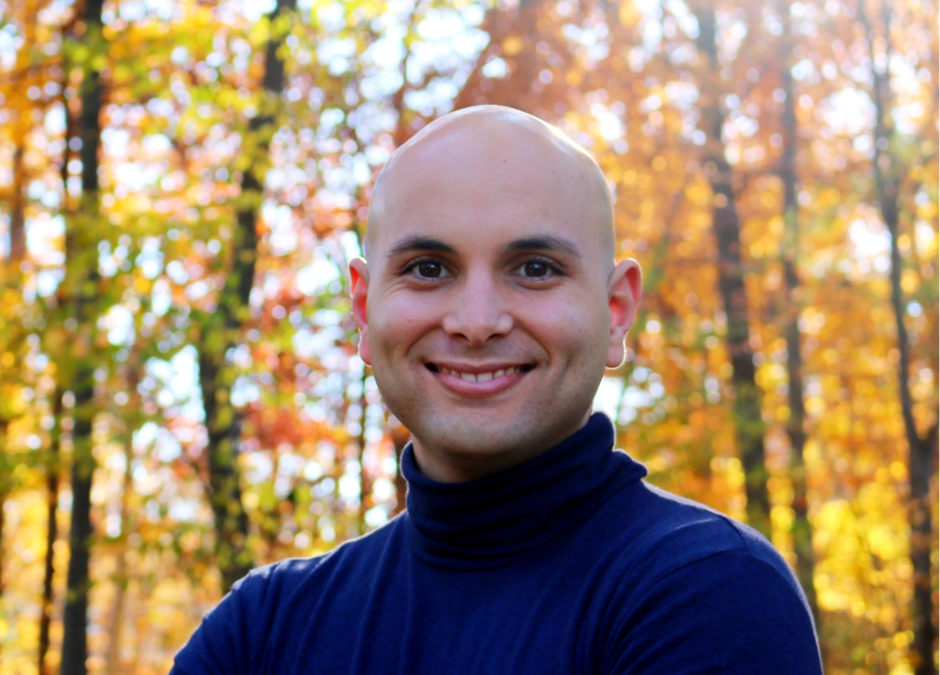Wiktoria Wawszczak: We are here with Professor Luis Javier Penton Herrera – he’s a teacher at our university.
Professor, it is a great pride for us that you were awarded with the TESOL Teacher of the Year Award.
Luis Pentón Herrera: Thank you very much
WW: What inspired you to become a teacher?
LPH: Well, my journey back to teaching goes back to 2011/2012. I was working at a non profit organization and I realised that that was not my passion. So I started volunteering in the community and one day I was asked to teach a course for immigrants and the moment I taught that class, I realised that teaching was my passion. That’s when I started teaching, the rest is history.
WW: That’s a great story. Could you tell us – can anyone learn English? Or is it ever too late to learn a new language?
LPH: It is never too late to learn a language! Anyone at any age can learn any languages.
I teach English and Spanish, and my oldest student – that I can remember – was 71 when he started learning and by 74 he learned Spanish. Anyone can learn at any age.
WW: That’s great news for me.
My next question to you is – are there any differences in quality and speed of learning when being teached by foreigner vs a compatriot? I’m asking this question because I know you’re from Cuba and I know you teach English to people of many nationalities, Azerbaijani, Polish people, Ukrainians. Are there any differences?
LPH: Really when it comes to learning and teaching, I think that the most important element is to have very respectful relationship between students and teachers, so that everybody feels comfortable. It really doesn’t matter what languages you know, as long as you have that relationship. At the end of the day I don’t think it makes a difference whether the teacher speaks the student’s languages, it’s just how they connect with each other.
WW: That leads me to my next question – does it matter if the teacher is a native speaker?
LPH: Not at all. That’s actually something that in the English language teaching field we have been struggling with. We’ve been talking a lot about native speakers and what they bring to the table versus non-native speakers. As i said – the native language of the teacher doesn’t really matter. What really matters is the teacher’s ability to connect with students. If students feel motivated, that’s the single most important element to learning a language.
WW: OK, going back to your experience, could you tell us about the most challenging situation you faced as a teacher?
LPH: It would have to be when I was teaching back in 2013/14. I was teaching in Maryland at a university. I had a student who was in the military and he had PTSD (Post Traumatic Stress Disorder). He struggled, he couldn’t manage himself after all his experiences. It was difficult because we were all adults and his problems with managing were affecting the entire class. Fortunately, I was glad to come up with some strategies to help him cope and connect with the class and to be able to work around his abilities and his management issues.
WW: That was a great story. Thank you for that. My next question is, can teachers change the world? Do you think that taking small steps as a teacher can lead us to a better world?
LPH: It’s a great question. Thank you for that. Well, I think that’s mostly why teachers are in the teaching profession. I’ve been talking a lot with my colleagues recently, because I just came back from a conference and I think we all chose the teaching profession – language teaching in my particular situation – because we do believe that we can change the world. Teaching gives the opportunity for all the other professions to be created. Without teachers there’s really no society, because there’s really no eduaction. So definitely, 100% – teachers can change the world!
WW: That’s great to hear. I too think that teaching is one of the most important professions.
I know of your publications and I know you’re a person that is acting against inequity. Why did you choose to stay in teaching instead of in another field that is addressing inequity?
LPH: Thank you for that question. I think everybody can do good things in their space. My space is education, and I think education is the best and biggest platform that we can use to change the world, but also to fight inequity. Society and eductaion are always interconnected, that’s why inequity in education means inequity in society. So that’s why I chose to stay in education – to fight inequity from its foundation. I think education is the most important space to fight and talk about inequity.
WW: That was a great answer. Thank you for that. Do you have any advices for people learning a new language?
LPH: Yes. I have an advice for English or any other language learners: stay motivated! Find something that you can connect to with the language and culture to keep yourself motivated. We’ve learned again and again and research keeps coming with very strong evidence that motivation is the single most important element when it comes to learning languages. We have to keep ourselves motivated as language learners, and I’m saying this even to myself as a learner of different languages – I’m also learning Polish as we speak. We have to find ways everyday to congratulate ourselves on everything that we’re doing with language learning. It is a difficult task, but it’s not impossible. So, my advice is: keep yourself motivated every single day and then you’ll keep moving forward.
WW: OK, and last but not least, any advices for aspiring teachers?
LPH: Be patient with yourself and with your students. Always. When we are new teachers – and I’m talking from my experience, but also from experience from colleagues – we are so full of energy, we just want to get into the classroom and start teaching and we want to see our students improving. But we have to be patient. We have to be patient with students, we have to be patient with ourselves as well, because if not we’re going to burn ourselves out. So just be patient with yourself, be patient with your students. Patience is the most important thing in teaching.
WW: Thank you very much.
LPH: Thank you for the interview and for the questions.
Watch the interview: https://www.youtube.com/watch?v=0bb5NQJ2SbI



